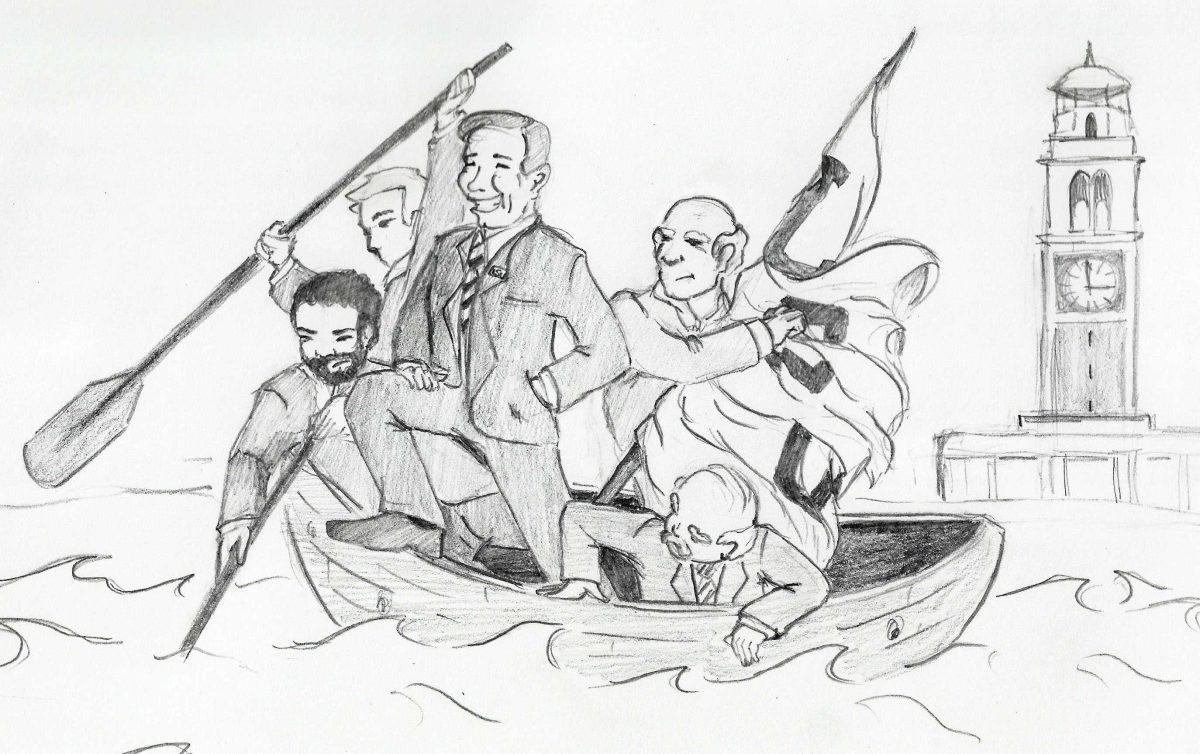American politicians and the University president and Board of Supervisors have one common ideology – bigger is better. But sometimes bigger means fancy, newer conditions along the borders while the core of the institution is decrepit and rotting.
University President F. King Alexander, along with the Board of Supervisors have set their sights on River Road. Hoping to expand LSU’s campus and bring in more students in the coming years, we have plans for new residential halls, shopping malls — you name it.
Meanwhile, several buildings on our existing campus have collapsing roofs, broken air conditioners and construction projects that will never end.
While the goal is to attract Louisiana students, luring them in with a fancy front will do nothing to change the ever-increasing student-to-teacher ratio, or the condition of buildings on campus.
America, too, has reached a massiveness that renders its government ineffective.
Conservatives versus Liberals, Republicans versus Democrats, politicians have exploited every problem faced by American citizens because of an interest in potential power over making a difference in people’s lives.
On Oct. 1, 2013, the members of Congress were unable to come to an agreement on budget legislation for 2014, which then caused a 16-day government shutdown.
And why? Because members of the Republican party were upset that the Affordable Care Act had gone through congress. Fortunately, the funding for that program was set in place prior to the Republican tantrum.
Our nation promises a democracy in which majority rules. But we should keep in mind that 51 percent is a majority. And while 49 percent is less than the majority, it encompasses roughly 153.8 million American people.
That’s 153.8 million human beings who are not on the winning side of American politics.
When the Constitution was written, there were 13 states that adopted it. Since then, we’ve expanded to include 37 other states that house individuals who the writers of the constitution could not have been thinking about in the late 1700s. In more than 200 years, only 27 amendments have been made to adapt the document to America’s citizens.
The solution here would be to cut our losses and allow those 153.8 million Americans to form a new country in which they can be accurately represented by a smaller, more efficient government.
Libertarians share this idea of a smaller government, but do not understand that lowering the government to population ratio will not solve all of our problems. Rather, we must lower both the population and government size.
Our country may be rich in resources like oil and grain, but the citizens benefit very little, if any, from those resources. Unless you count the minimum wage — read: unliveable wage — that they receive from the hard labor of collecting those resources.
We pay taxes to take part in a society because we have learned there is strength in numbers. But when you contribute yourself to a population and the nation does nothing to benefit you, the sheer size becomes ineffective.
Similarly, many LSU classes have seen a rise in population, which then creates a decrease in total productivity.
Art 1001 is a general education arts course at LSU, which enrolls roughly 900 students per semester. It is taught by a single professor and a graduate assistant.
The effectiveness of this class is not to be blamed on the professor. With a student-to-teacher ratio so large, it is impossible to properly educate every single student on the difference between a Monet and a Picasso.
A mere two semesters after receiving an “A” in the course, I couldn’t tell you the difference.
My message to Alexander is this: Being the University president responsible for expanding LSU’s campus may be quite a legacy to leave behind, but, sir, size doesn’t matter in an institution of education.
Effectiveness and efficiency is what matters.
Jana King is a 19-year-old communication studies sophomore from Ponchatoula.
Yes. Growth beneficial for U.S. and LSU
Opinion: No. Like America’s manifest destiny, Alexander’s LSU expansion could lead to an ineffective university.
By Jana King
February 24, 2014





